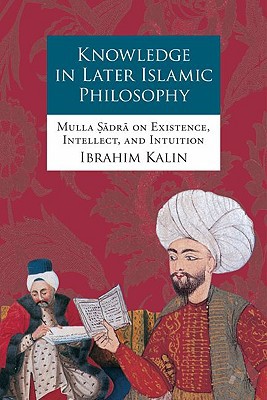

Most ebook files are in PDF format, so you can easily read them using various software such as Foxit Reader or directly on the Google Chrome browser.
Some ebook files are released by publishers in other formats such as .awz, .mobi, .epub, .fb2, etc. You may need to install specific software to read these formats on mobile/PC, such as Calibre.
Please read the tutorial at this link. https://ebooknice.com/page/post?id=faq
We offer FREE conversion to the popular formats you request; however, this may take some time. Therefore, right after payment, please email us, and we will try to provide the service as quickly as possible.
For some exceptional file formats or broken links (if any), please refrain from opening any disputes. Instead, email us first, and we will try to assist within a maximum of 6 hours.
EbookNice Team

Status:
Available4.7
38 reviews
ISBN 10: 0199735247
ISBN 13: 9780199735242
Author: Ibrahim Kalin
This study looks at how the seventeenth-century philosopher Sadr al-Din al-Shirazi, known as Mulla Sadra, attempted to reconcile the three major forms of knowledge in Islamic philosophical discourses: revelation (Qur’an), demonstration (burhan), and gnosis or intuitive knowledge (‘irfan). In his grand synthesis, which he calls the 'Transcendent Wisdom’, Mulla Sadra bases his epistemological considerations on a robust analysis of existence and its modalities. His key claim that knowledge is a mode of existence rejects and revises the Kalam definitions of knowledge as relation and as a property of the knower on the one hand, and the Avicennan notions of knowledge as abstraction and representation on the other. For Sadra, all these theories land us in a subjectivist theory of knowledge where the knowing subject is defined as the primary locus of all epistemic claims. To explore the possibilities of a ‘non-subjectivist’ epistemology, Sadra seeks to shift the focus from knowledge as a mental act of representation to knowledge as presence and unveiling. The concept of knowledge has occupied a central place in the Islamic intellectual tradition. While Muslim philosophers have adopted the Greek ideas of knowledge, they have also developed new approaches and broadened the study of knowledge. The challenge of reconciling revealed knowledge with unaided reason and intuitive knowledge has led to an extremely productive debate among Muslims intellectuals in the classical period. In a culture where knowledge has provided both spiritual perfection and social status, Muslim scholars have created a remarkable discourse of knowledge and vastly widened the scope of what it means to know. For Sadra, in knowing things, we unveil an aspect of existence and thus engage with the countless modalities and colours of the all-inclusive reality of existence. In such a framework, we give up the subjectivist claims of ownership of meaning. The intrinsic intelligibility of existence, an argument Sadra establishes through his elaborate ontology, strips the knowing subject of its privileged position of being the sole creator of meaning. Instead, meaning and intelligibility are defined as functions of existence to be deciphered and unveiled by the knowing subject. This leads to a redefinition of the relationship between subject and object or what Muslim philosophers call the knower and the known.
Chapter I: The Problem of Knowledge and the Greco-Islamic Context of the Unification Argument
1.1. The Greco-Alexandrian Background
a. Plato’s bios theoretikos
b. Aristotle and the ‘Intellect from Without’
c. Alexander of Aphrodisias: Beyond Orthodoxy and Innovation
d. Plotinus Islamicus and the Unification Argument
1.2. Islamic Philosophy
a. Al-Kindi: The Beginning of the Problem in the Islamic Milieu
b. Al-Farabi: Problem Restated
c. Ibn Sina: Sadra’s Greatest Challenge
d. Suhrawardi: On the Way to Sadra
Chapter II: Mulla Sadra’s Theory of Knowledge and the Unification Argument
2.1. Sadra’s Ontology
a. Essence and Existence
b. The Primacy and Gradation of Existence
2.2. Existence, Intelligibility and Knowledge
a. Disembodiment as Intelligibility and Gradation in Knowledge
b. Four Theories of Knowledge and Their Critique
c. Modes of Perception and the Simple Intellect
d. Active Intellect, Intuition, and Peripatetic Intellectualism
e. Unification of the Intellect and the Intelligible
f. Self-Knowledge and Knowledge-by-Presence
g. Knowledge-by-Presence and God’s Knowledge of Things
Chapter III: Sadra’s Synthesis: Knowledge as Experience, Knowledge as Being
3.1. Epistemology Spiritualized: Is Mystical Knowledge Possible?
3.2. Knowledge as Finding Existence
knowledge in later islamic philosophy
islamic philosophy lecture
knowledge in islamic philosophy
i knowledge islamic
islamic philosophy a beginner's guide
book of knowledge islam
Tags: Ibrahim Kalin, Knowledge, Islamic